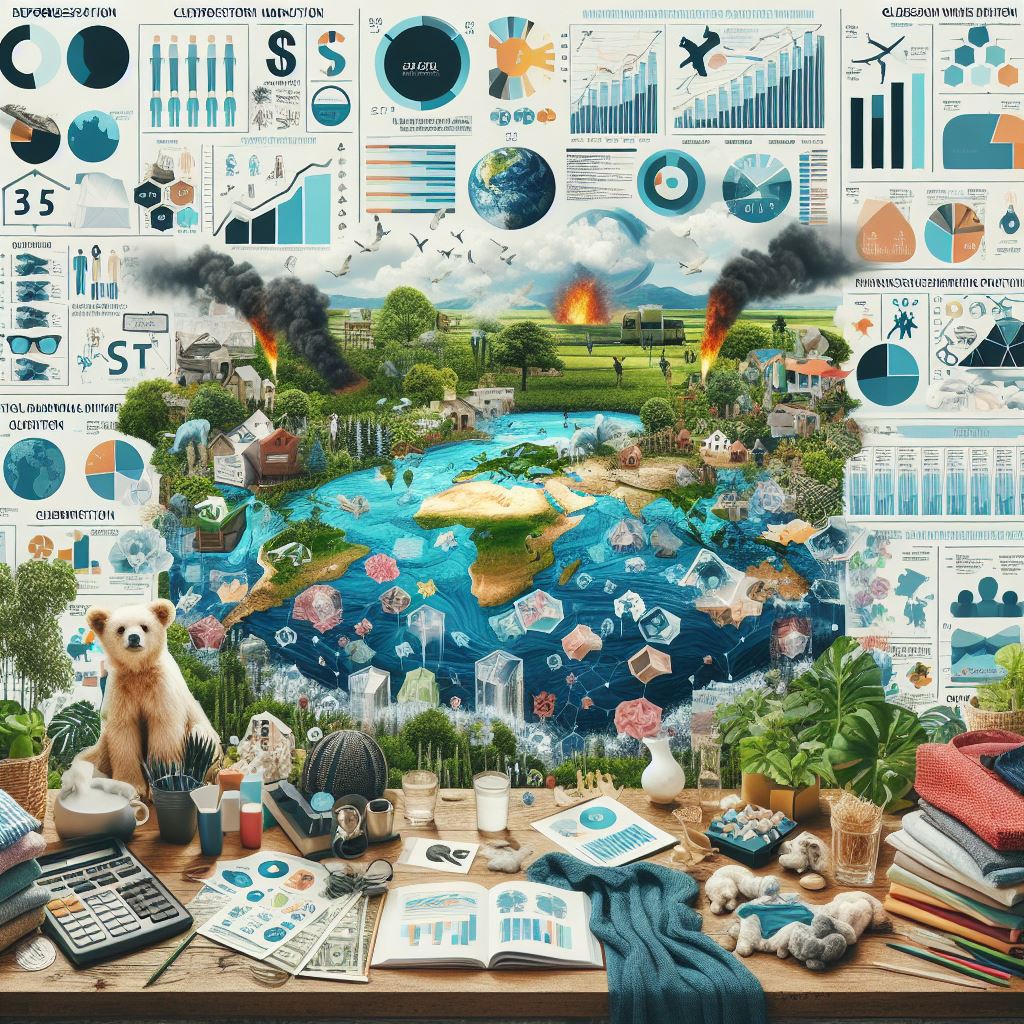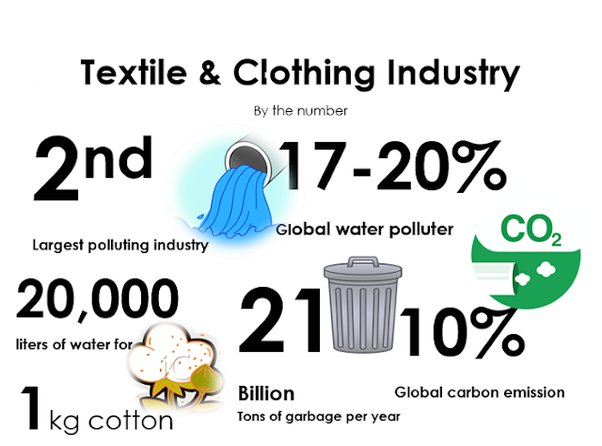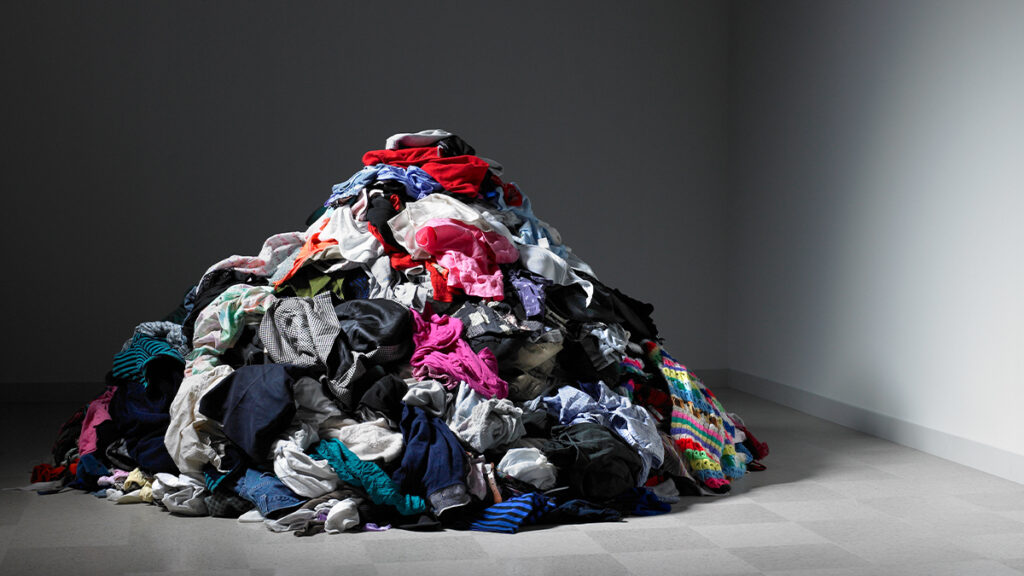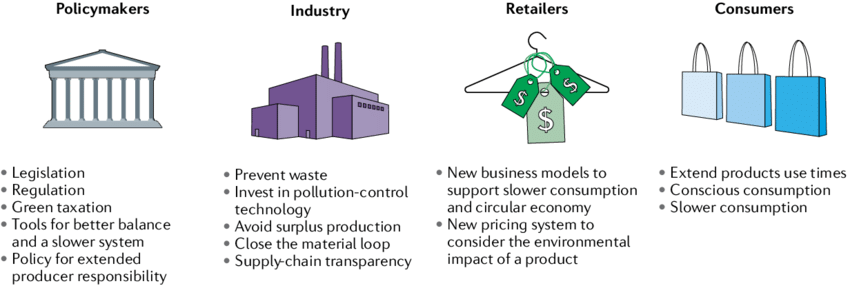
The fashion industry, while fueling creativity and self-expression, has a significant negative impact on the environment.
Here are some key points:
Environmental Impact:

Resource Consumption: Manufacturing clothes requires vast amounts of water, energy, and raw materials like cotton and polyester. Cotton production alone uses 2.5% of the world’s arable land and consumes 77 trillion liters of water annually.
Pollution: The industry generates substantial pollution through textile dyeing, finishing, and garment production. These processes release harmful chemicals into air and water sources, impacting human health and ecosystems.
Waste: The fast fashion cycle encourages overconsumption, leading to mountains of textile waste. Landfills overflow with discarded clothing, releasing harmful microplastics and methane gas.
Social Impact:

Unethical Labor Practices: The industry is notorious for poor working conditions, low wages, and child labor, particularly in developing countries.
Limited Diversity and Representation: The fashion industry often promotes unrealistic beauty standards and struggles with representation of diverse body types, ethnicities, and genders.
Steps to Solve the Problem:
Individual Actions:

Buy Less, Choose Better: Embrace a minimalist approach, buy fewer clothes, and invest in high-quality, durable pieces. Prioritize brands that prioritize ethical and sustainable practices.
Shop Secondhand: Give new life to existing clothes by shopping at thrift stores, consignment shops, or online marketplaces.
Take Care of Your Clothes: Wash your clothes less often and air-dry them instead of using a dryer to reduce wear and tear. Learn basic repairs to extend the life of your garments.
Support Sustainable Brands: Choose brands committed to ethical production, sustainable materials, and eco-friendly manufacturing processes.
Raise Awareness: Talk to your friends and family about the issue and encourage them to adopt sustainable practices.
Industry-Wide Changes:

Circular Economy: Implementing a circular economy model within the fashion industry would involve designing clothes for disassembly and recycling, minimizing waste, and extending the lifespan of garments.
Sustainable Materials: Increasing the use of eco-friendly materials like organic cotton, recycled polyester, and bio-based textiles can significantly reduce the industry’s environmental footprint.
Ethical Labor Practices: Brands need to ensure fair wages, safe working conditions, and transparency throughout their supply chains.
Diversity and Representation: Promoting body positivity, showcasing diverse models and designers, and challenging unrealistic beauty standards are crucial for inclusivity and representation in the fashion industry.
Government and Regulatory Bodies:
Regulations and Legislation: Governments can introduce stricter regulations on environmental and social practices within the industry, holding brands accountable for their impact.
Tax Incentives and Subsidies: Encouraging sustainable practices through tax incentives and subsidies for eco-friendly materials and production methods can incentivize positive change.
By taking action at both individual and industry-wide levels, we can work towards a more sustainable and ethical fashion industry that protects our planet and its people.









